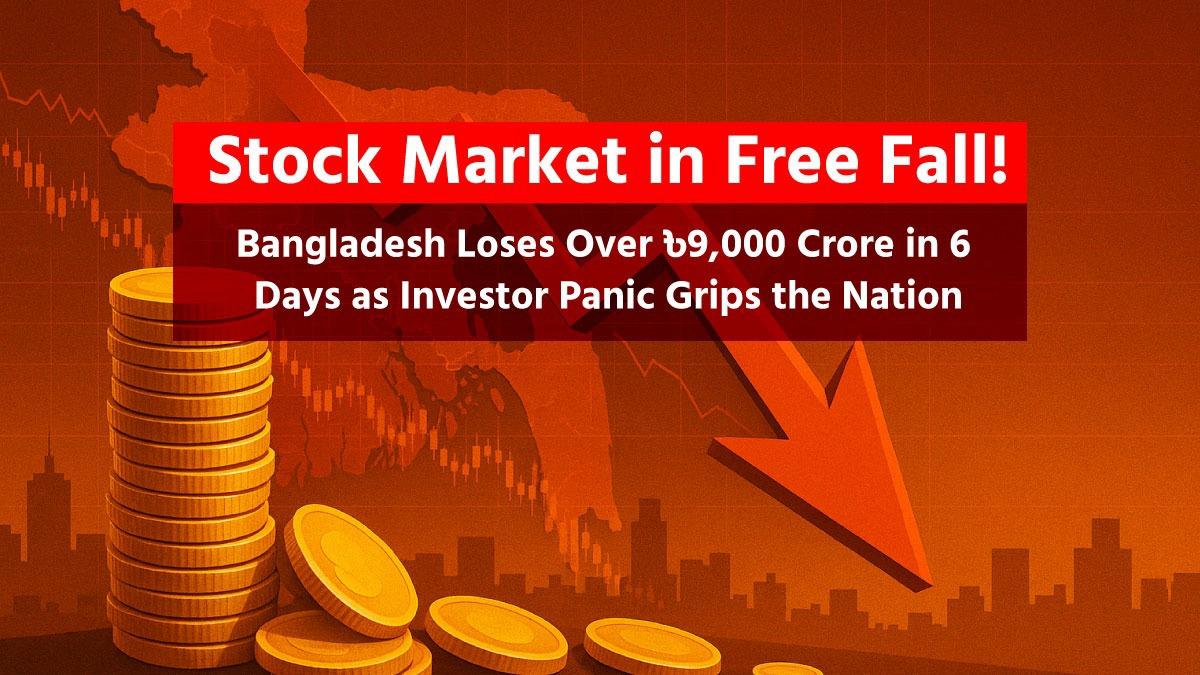The freefall in Bangladesh’s stock market continues unabated, sending waves of panic across the investor community. Over the past six consecutive trading sessions, the main index of the Dhaka Stock Exchange (DSE) — the DSEX — has plummeted by a staggering 186.49 points, wiping out nearly ৳9,126 crore in market capital.
On Wednesday, May 28, the DSEX dropped another 62.72 points, closing at 4,615. Out of the 398 listed companies and mutual funds that traded, shares of 295 companies (74%) declined, while only 63 gained, and 40 remained unchanged.
From the start of trading, the index showed a sharp negative trend, falling 10 points early in the day and intensifying by the hour. Mounting pressure in the market triggered widespread fear and uncertainty, severely impacting investor confidence.
Total trade volume stood at ৳264.98 crore, down by around ৳8 crore from the previous day.
Analysts say the continued decline is discouraging investors, keeping new capital from entering the market. The shockwaves have reached the Chittagong Stock Exchange (CSE) as well, where the index dropped 150.41 points, settling at 13,013. Only ৳18.52 crore in trades were recorded there.
Market insiders believe that it’s not just economic pressures — but a deep crisis of investor trust — that’s driving the collapse. A long-standing lack of transparency, governance, and regulatory effectiveness has left investors feeling exposed and unsafe.
The Bangladesh Securities and Exchange Commission (BSEC) has come under fire for failing to take meaningful action to stabilize the market.
To make matters worse, Bangladesh Bank’s recent directive — which bars 18 listed banks from paying dividends in 2024 — may further erode confidence, especially in the financial sector.
Economists warn that Bangladesh’s capital market is going through one of its most critical phases. Without immediate, bold, and long-term reforms, the erosion of capital and trust may become irreversible.





